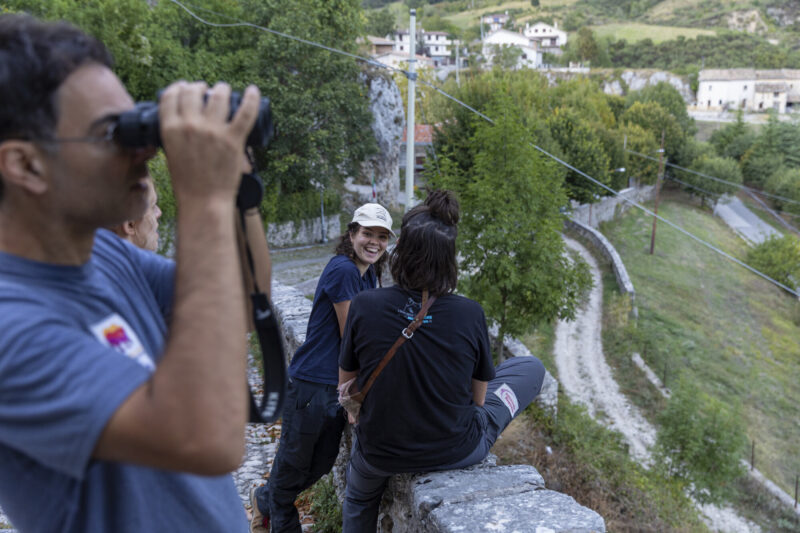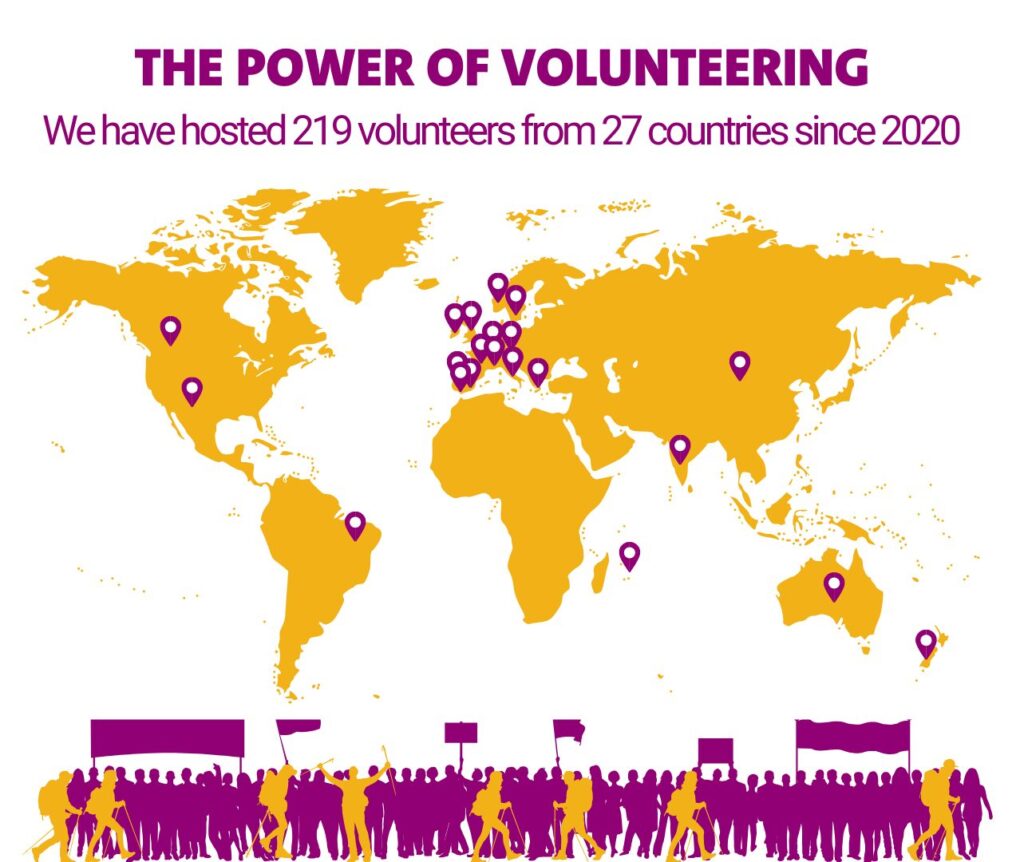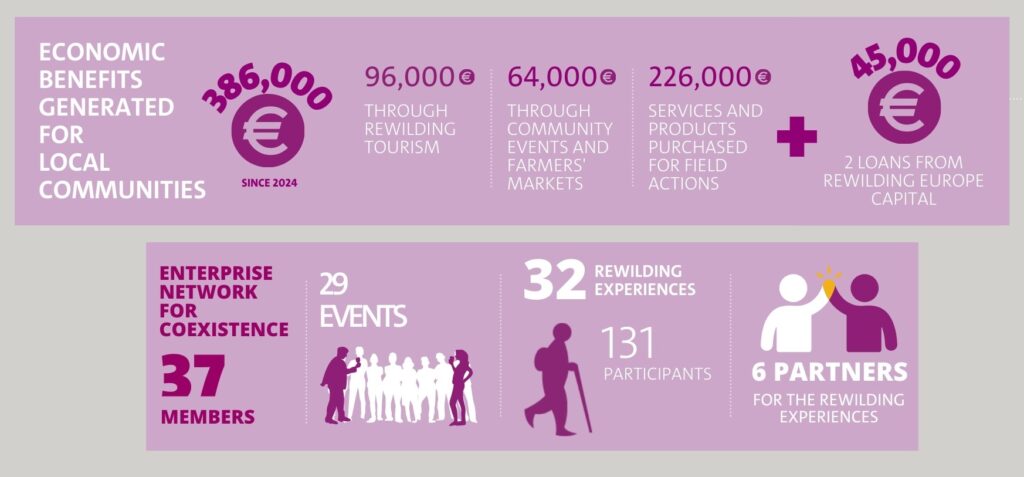Rewilding is not just about restoring nature—it is also an opportunity to revitalize the economy, create jobs, and enhance human health and well-being.
After more than 40 years of neoliberal policies, it is clear that our current economic model is no longer sustainable. The indiscriminate exploitation of natural resources has triggered profound climate change, threatening food security and biodiversity. At the same time, recurring socioeconomic crises have deepened poverty and inequality worldwide.
To address these challenges, we must redefine our relationship with nature and develop social and economic models that support both communities and natural resources.
Nature is abundantly generous to those who respect and benefit from its resources—but we must also give back through careful stewardship. Rewilding offers a way to regenerate ecosystems, enabling all forms of life to adapt and thrive in an ever-changing world.
In the Central Apennines, we work closely with local stakeholders to strengthen the bond between people and nature. Our mission is to build a network of businesses and citizens united by a shared commitment to sustainability and coexistence.
All the benefits of nature
Economic benefits: a new future for rural areas
Many rural areas in Italy and across Europe are undergoing profound changes due to migration to cities. This rural exodus has led to a decline in local goods and services, reduced public and private investment, and an increasing reliance on subsidies.
The consequences are clear: a shrinking skilled workforce, fewer productive activities, and limited employment and economic growth opportunities.
In response to these challenges, rewilding presents a tangible alternative—building a new economy rooted in nature restoration. The rising global interest in nature-based tourism is one of the strongest indicators of this approach’s potential. More and more travelers seek authentic experiences in unspoiled landscapes.
Health and safety: the invaluable power of nature
Human health is inseparable from the health of nature. When ecosystems function properly, they provide essential services that sustain all life—including ours.
Food, fresh water, medicine, raw materials—without these, life as we know it would not exist. Soil formation, nutrient cycling, pollination, and seed dispersal ensure long-term food security, while regulatory services help protect our environment by mitigating floods, purifying water, stabilizing the climate, and limiting the spread of diseases.
Preserving ecosystems means securing our future. Investing in nature is not just environmental protection—it is a necessity for the health, well-being, and resilience of present and future generations.
Social benefits: rewilding as a force for cohesion and renewal
Beyond economic decline, depopulation also weakens rural communities by eroding access to essential services such as education and healthcare. Populations age, families become fragmented, and cultural heritage and traditional skills gradually fade.
Nature-based economies offer an opportunity to reshape the future of rural areas, not only by creating economic prospects but also by fostering a renewed sense of identity and pride in one’s land and the natural heritage that defines it.
Rewilding Apennines serves as a model for collaboration between businesses and citizens, working to strengthen social cohesion, enhance cultural and natural heritage, and improve the well-being of local communities.
Investing in nature means investing in people—those who choose to stay and those who wish to return, helping to build a thriving future in these landscapes.
Psychological benefits and cultural services: beyond price and profit
Nature is not just a source of resources and essential services—it is also nourishment for the soul.
Throughout history, humans have drawn endless inspiration from nature. From literature to poetry, from visual arts to performance, across all cultures and eras, people have looked to its beauty and complexity to create extraordinary works.
This deep connection shows that nature’s value extends far beyond its material usefulness—it is an integral part of our cultural identity and inner well-being.
And we don’t have to look far to experience this firsthand. Anyone who has spent time in a forest, on a mountain, or by a river knows how profoundly nature can restore both body and mind. Today, science confirms it: exposure to natural environments reduces stress, boosts mood, and strengthens psychological well-being. The sounds, colors, and rhythms of nature offer a balance that humans instinctively recognize, reminding us that its worth cannot be measured in economic terms alone.
Our volunteers: new energy for the villages of the central Apennines
In small towns, often affected by depopulation, volunteers bring more than just practical support—they spark encounters, cultural exchanges, and fresh energy. Their presence breaks routine, creates connections, and leaves lasting impressions.
Interacting with local communities strengthens the sense of belonging and opens up unexpected perspectives. Many volunteers return, some put down roots, and others become ambassadors for these places beyond their borders.
The local economy also benefits—shops, accommodations, and small businesses gain momentum from their steady presence. Word-of-mouth among friends and family brings new visitors, and what may have started as a temporary experience can evolve into a genuine opportunity for the region.


